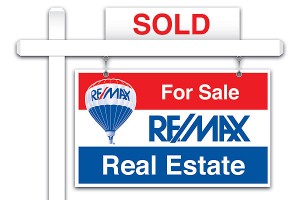 If you ask anyone who has ever tried to sell their own home they’ll tell you that from the moment the Phoenix “For Sale By Owner” (FSBO) sign goes up, the phone begins to ring. Unfortunately, many of those calls will not be from prospective buyers, but rather from real estate agents looking to obtain your listing. Obviously the idea of not having to pay a commission to a real estate agent is attractive to any home seller. But because of all the issues involved in the home selling process, selling a home on one’s own can be quite challenging, as many home sellers will attest to. The key is to be properly prepared. If you are not, your home could remain on the market longer than you expect because you are not attracting offers from qualified buyers. This can be a point where many homeowners become frustrated and consider giving up the idea of selling their home themselves. However, there are sellers who accomplish selling their own homes and you can be one of them. I have assembled this information to assist For Sale By Owner sellers in Phoenix understand the elements involved so you can sell your home quickly and for the most amount of money. To help you get ready, here are 10 tips to be aware of before selling your own home:
If you ask anyone who has ever tried to sell their own home they’ll tell you that from the moment the Phoenix “For Sale By Owner” (FSBO) sign goes up, the phone begins to ring. Unfortunately, many of those calls will not be from prospective buyers, but rather from real estate agents looking to obtain your listing. Obviously the idea of not having to pay a commission to a real estate agent is attractive to any home seller. But because of all the issues involved in the home selling process, selling a home on one’s own can be quite challenging, as many home sellers will attest to. The key is to be properly prepared. If you are not, your home could remain on the market longer than you expect because you are not attracting offers from qualified buyers. This can be a point where many homeowners become frustrated and consider giving up the idea of selling their home themselves. However, there are sellers who accomplish selling their own homes and you can be one of them. I have assembled this information to assist For Sale By Owner sellers in Phoenix understand the elements involved so you can sell your home quickly and for the most amount of money. To help you get ready, here are 10 tips to be aware of before selling your own home:
❶ Price it Right
Correctly setting your asking price is critical and setting your price too high can be as costly as setting it too low. Home prices are determined by changes in the market, not by what you feel your home is worth or what you paid for it. In order to establish a realistic price for your home, objectively compare the price, features and condition of all similar homes in both your neighborhood and other similar ones which have sold in recent months. It is also important for you to be familiar with the terms of each potential sale. Terms are often as important as price in today’s market. Carefully budget your selling costs and prepare a net proceeds sheet to calculate your best estimate of what you will receive from your home sale.
❷ Prepare Your Home for Sale
First impression is crucial. Make sure your home makes a positive statement by carefully inspecting all details and viewing it through the objective eyes of a buyer. Don’t gloss over needed repairs and maintenance – your prospective buyers won’t! Your job is to ensure your home stands out favorably from the competition and taking great pictures to showcase your home is also a terrific way to start.
❸ Prepare Yourself With Documentation
Not surprisingly, there are many important documents which you must assemble, complete and understand. A partial checklist of forms that you will need includes:
• Seller’s Property Disclosure Statement • Purchase Contract • Mortgage Payoff Statement (caution: do you owe more than your expected net proceeds?) • Buyer Loan Pre-Qualification • Preliminary Title Report • Property Profile Fact Sheet • HUD-1 Settlement Statement • HOA Demand Statement • CC&Rs from your HOA • Personal Property Exclusion List • Property Survey • Addendum • CLUE Report
❹ Market Your Home Effectively
In addition to the sign you will put on your lawn, you should find effective ways to spread the word about your home. Local buyers can be reached through the newspaper, but this is only a small part of the market you are after. Be sure you include the many buyers who could already be working with a realtor. Because out-of town buyers are also an important target, you should create an online presence to reach these people as well. Above all, you should be very service minded and make it easy for pre-qualified buyers to view your home. Ensure there is always someone available to answer the phone, return voicemails, emails and texts promptly, and be ready to give qualified prospects a tour of your home on short notice.
❺ Remain Objective During Showings
Keep emotion out of the sale of your home. The best way to do this during a showing is to remain physically in the background. If a prospective buyer says something negative about your home, it is better to counter-balance this point of view by illustrating the positives rather than becoming defensive.
❻ Pre-Qualify Your Prospects
Don’t waste your time entertaining buyers who could never afford your home. Research their financial ability with respect to job history, salary, debts, liabilities and credit score. Ask for their lender pre-qualification letter.
❼ Negotiate Effectively
There will be many details to resolve before a sale can be considered final: price, terms, inspections, repairs, possession date, buyer concerns and objections. Make sure you fully understand the contract you have written up so you can in turn explain details and ramifications to the buyer and make any amendments to the sale that are necessary along the way. The contract and documents you use should be thoroughly examined by your real estate attorney. Some real estate brokers may be willing to help you do this. While this is going on, manage the buyer’s interest in your home so that it doesn’t deteriorate during negotiations.
❽ Know Your Buyer
Your objective during negotiations is to control the pace and set the duration. Try to determine what your buyer’s motivation is. Do they need to move quickly? Do they have enough money to pay your asking price? Knowing this information will give you the advantage in the negotiations because you will know up front what you will need to do in order to get what you want.
❾ Don’t Move Out Before You Sell
Studies have shown that it is more difficult to sell a home that is vacant. It can look forgotten and often not as appealing. It could even cost you money. If you move, you’re also telling buyers that you have a new home and are motivated to sell this one fast which can give them an advantage in the negotiations.
❿ Know Why You’re Selling and Keep it to Yourself
The flip side of “understanding your buyer” is to “understand yourself”. Your reasons for selling will affect everything from your list price to how much time and money you will invest in getting your home ready for sale. Your motivation will help you determine what is more important to you: the money you walk away with, the length of time your property is on the market, or both. Different goals will dictate different strategies. As someone who wants to sell their Phoenix home without a real estate agent in an effort to save commission, it is likely that money is one of your primary considerations. Whatever your reasons, it is very important to keep them private so as not to place yourself at a disadvantage in the negotiations. If asked, simply say that your housing needs have changed.
How to Calculate Your Net Gain:
To analyze whether or not you will end up ahead by choosing to sell on your own, consider the fact that most buyers do use a real estate agent because it doesn’t cost them anything for this service. Be cautious as buyers and investors who seek out For Sale by Owners are typically those in search of a bargain. The low-ball offers from these types of buyers will often net you much lower in the long run. What you will have to judge for yourself is the following: consider what it will cost you in time to effectively market your home and assemble all necessary materials from the “For Sale By Owner” sign to documents. What price will a buyer offer you as a For Sale by Owner minus the costs identified above. Is this net price higher than the price an experienced realtor could net for you minus the commission? Unsure? Overwhelmed? Let me prepare a free Phoenix home evaluation on your home – with no obligation!
 When you decide to
When you decide to  New homes offer innovative use of space and style, greater energy efficiency, a choice of options and upgrades, and of course everything is new and modern. Existing (resale) homes on average are less expensive, often tend to be in established neighborhoods with mature landscaping and have already settled in terms of creaks and cracks. As you can see, there are advantages to both. Most buyers consider both
New homes offer innovative use of space and style, greater energy efficiency, a choice of options and upgrades, and of course everything is new and modern. Existing (resale) homes on average are less expensive, often tend to be in established neighborhoods with mature landscaping and have already settled in terms of creaks and cracks. As you can see, there are advantages to both. Most buyers consider both 